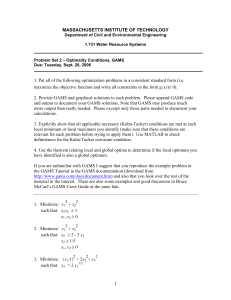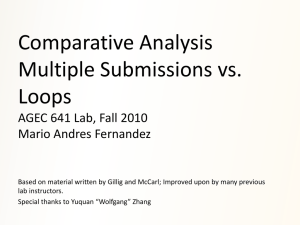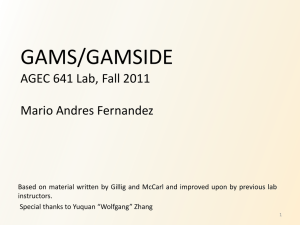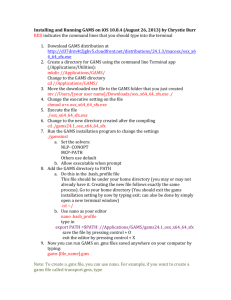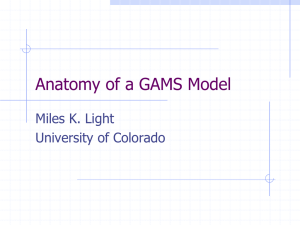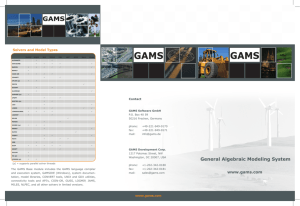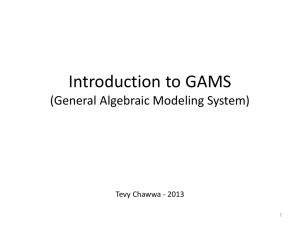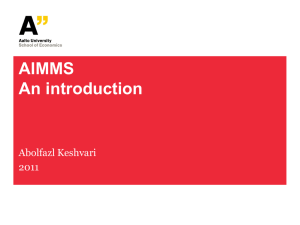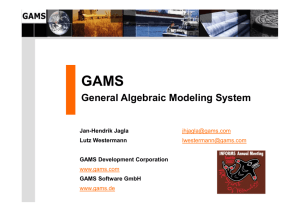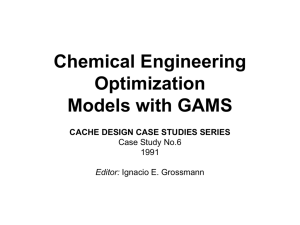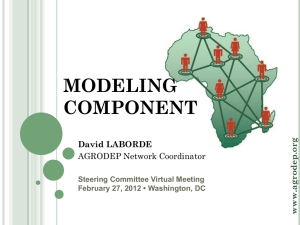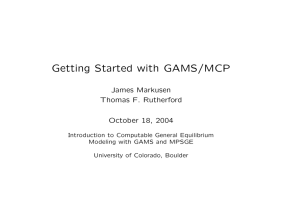Two Ways to Run GAMS (PPT)
advertisement
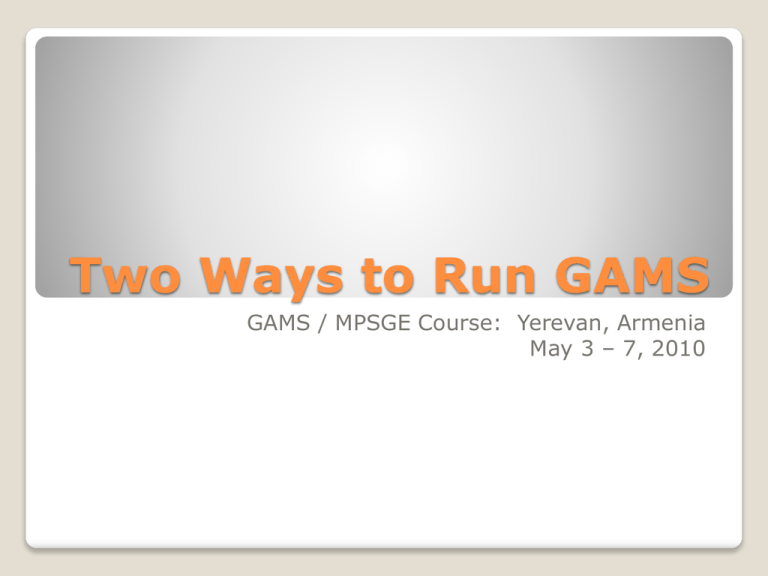
Two Ways to Run GAMS GAMS / MPSGE Course: Yerevan, Armenia May 3 – 7, 2010 GAMS – Generalized Algebraic Modeling System Strength: “Optimization” History: ◦ Originated in 1990 at World Bank ◦ Financed later by Oil-refineries ◦ Now used by economists, chemists, and other scientists who need optimization Company is small (4-5 people), based in Georgetown, Washington, DC. Introduction to GAMS GAMS is a “modular” system Base GAMS is the general data-management and data-manipulation part. GAMS “solvers” are separate plugin style software developed by outsiders, for example: ◦ MINOS: Non-Linear Program (NLP) solver, by academics at Stanford U. ◦ CONOPT: NLP developed by professor in Netherlands ◦ PATH: Mixed-Complimentary Solver (MCP) developed at U. Wisconsin (Madison) Structure of GAMS For 20 years, GAMS has been a “command-line” program In 2005, GAMS developed “GAMS-IDE” – the “Integrated Development Environment” IDE is a Graphical Interface for the Command-Line software Using GAMS: GUI or Command? GAMS IDE You get a “GUI” where you can edit the program But files are placed in a strange location: ◦ C:\users\lightm\Documents\gamsdir\projdir\trnsport.gms GAMS IDE Input Program (.gms) and outputs (.lst) have tabs GAMS IDE Pros: ◦ ◦ ◦ ◦ Easy to get started Point and click Automatically organizes files / folders Integrated text editor Cons: ◦ ◦ ◦ ◦ Hard to understand what happens in “background” File locations are un-intuitive Always need a “project dir” Text-editor is weak GAMS IDE: PROs and CONs Original GAMS uses a “command Line” (MS-DOS) A separate Text Editor is required Input and Output files are standard “text files” No GUI Must learn commands in MS-DOS Traditional GAMS Traditional GAMS GAMS + Epsilon Pros: ◦ Easier to see where files are ◦ More powerful text editor ◦ Doesn’t require the mouse Cons: ◦ ◦ ◦ ◦ ◦ Harder to get Started Requires learning about your computer Can’t easily use the mouse Must learn to use a text editor Must learn to use MS-Dos commands GAMS + Epsilon
